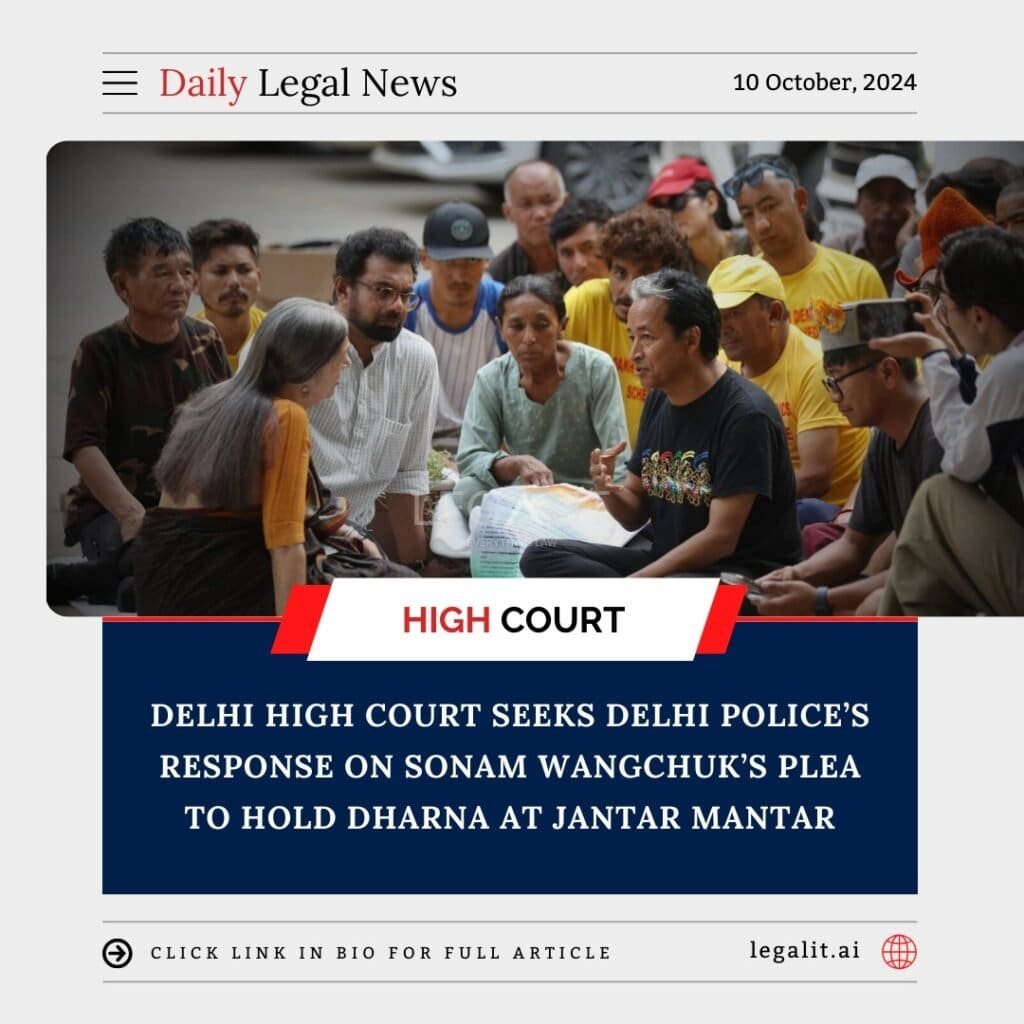
Background of the Case
Sonam Wangchuk, a renowned innovator and environmental activist, had applied for permission to stage a peaceful dharna (protest) at Jantar Mantar in Delhi. His protest aimed to highlight pressing environmental issues in the Ladakh region, focusing on the need for sustainable development and conservation efforts. However, his application was denied by the Delhi Police, prompting him to approach the Delhi High Court for relief. Wangchuk’s activism has garnered national attention due to his contribution to environmental and educational reforms in Ladakh and beyond.
Court’s Ruling and Reasoning
The Delhi High Court, after hearing Wangchuk’s plea, sought a response from the Delhi Police on why they had denied him permission to hold the protest. The court emphasized the importance of allowing peaceful protests, as they are a fundamental right under Article 19(1)(a) and Article 19(1)(b) of the Indian Constitution, which guarantee freedom of speech and expression, and the right to assemble peacefully. The court questioned whether the denial was justified, given that Jantar Mantar is a designated spot for protests and demonstrations. The Delhi Police’s response was crucial in determining if their decision was based on genuine security concerns or if it infringed on Wangchuk’s fundamental rights.
Implications of the Judgment
This case brings into focus the delicate balance between maintaining law and order and protecting citizens’ constitutional rights to free speech and peaceful assembly. If the court rules in favor of Wangchuk, it could set a precedent for future cases involving peaceful protests in Delhi, especially at Jantar Mantar, which has historically been a hub for demonstrations. It could also challenge the police’s discretionary powers in granting or denying permission for such events, ensuring that such decisions are made transparently and in accordance with the law.
Need for Reforms in Protest Permissions
The current legal framework governing the granting of permissions for protests often leaves room for discretionary interpretation by the authorities. There have been repeated calls for reforms to standardize the process, ensuring that genuine protests are not stifled due to bureaucratic hurdles or arbitrary decisions. In cases like Wangchuk’s, the focus is on promoting an environment where activism can thrive without unnecessary legal obstructions, while still maintaining public order.
Conclusion
The Delhi High Court’s involvement in this matter highlights the importance of judicial oversight in cases where fundamental rights may be at risk. As India continues to navigate the complexities of free speech and public demonstrations, cases like this one will shape the boundaries between citizen activism and state control. The court’s final ruling could serve as a reminder that peaceful protests are a cornerstone of democracy, and any restrictions on them must be carefully scrutinized.